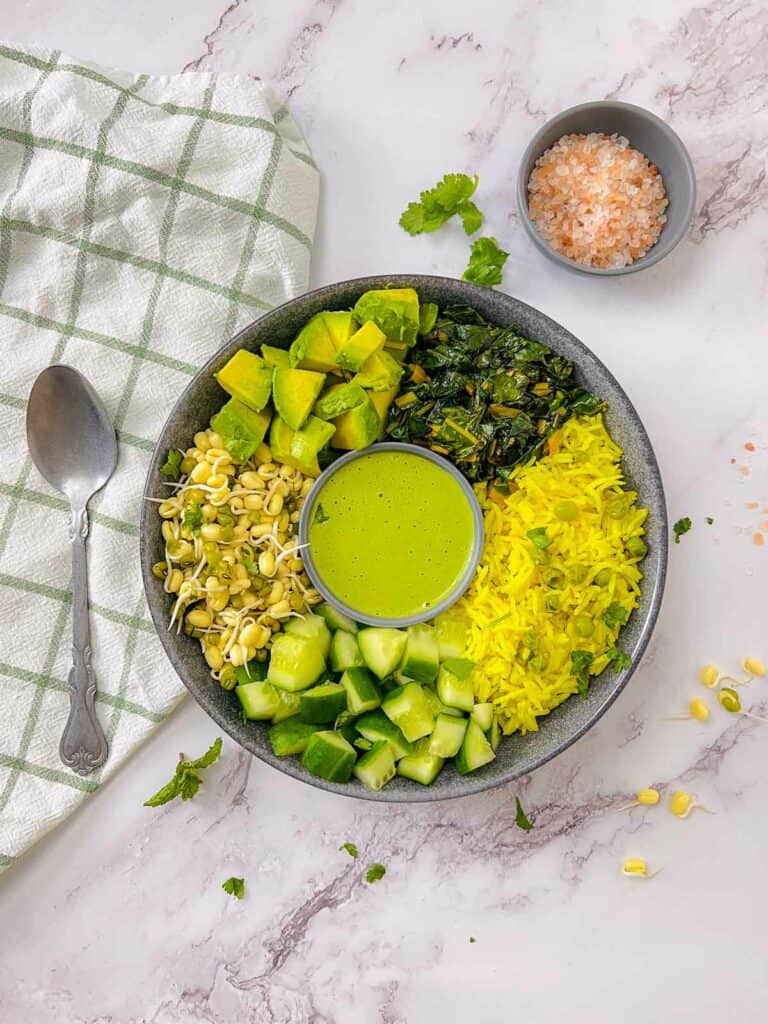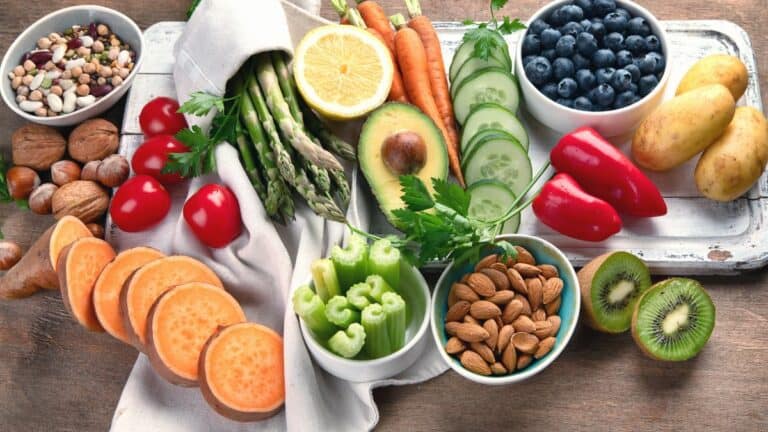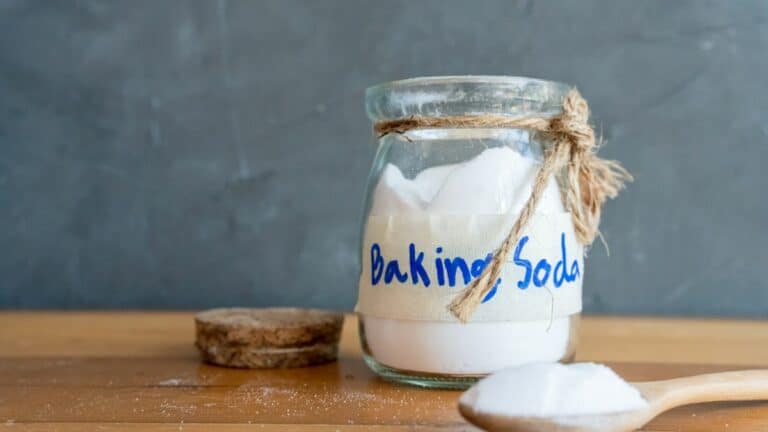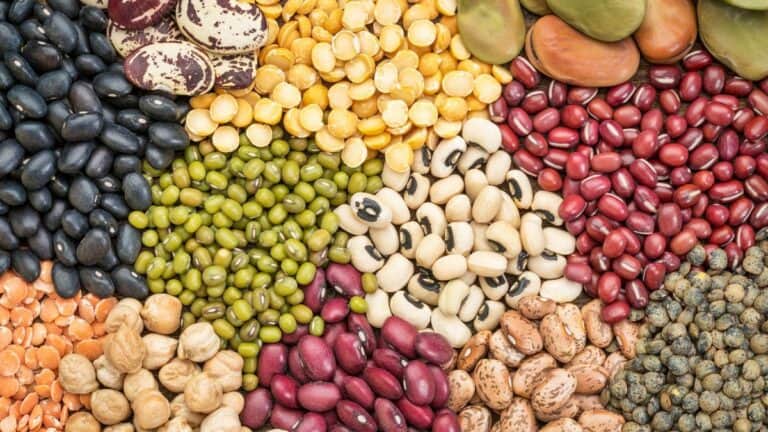20 Eco-Friendly Swaps for a Greener Kitchen
Creating a greener kitchen is a great way to reduce your environmental footprint and promote sustainability in your daily life. Here are 20 eco-friendly swaps that can make a significant impact on your kitchen’s environmental footprint.

Reusable Shopping Bags
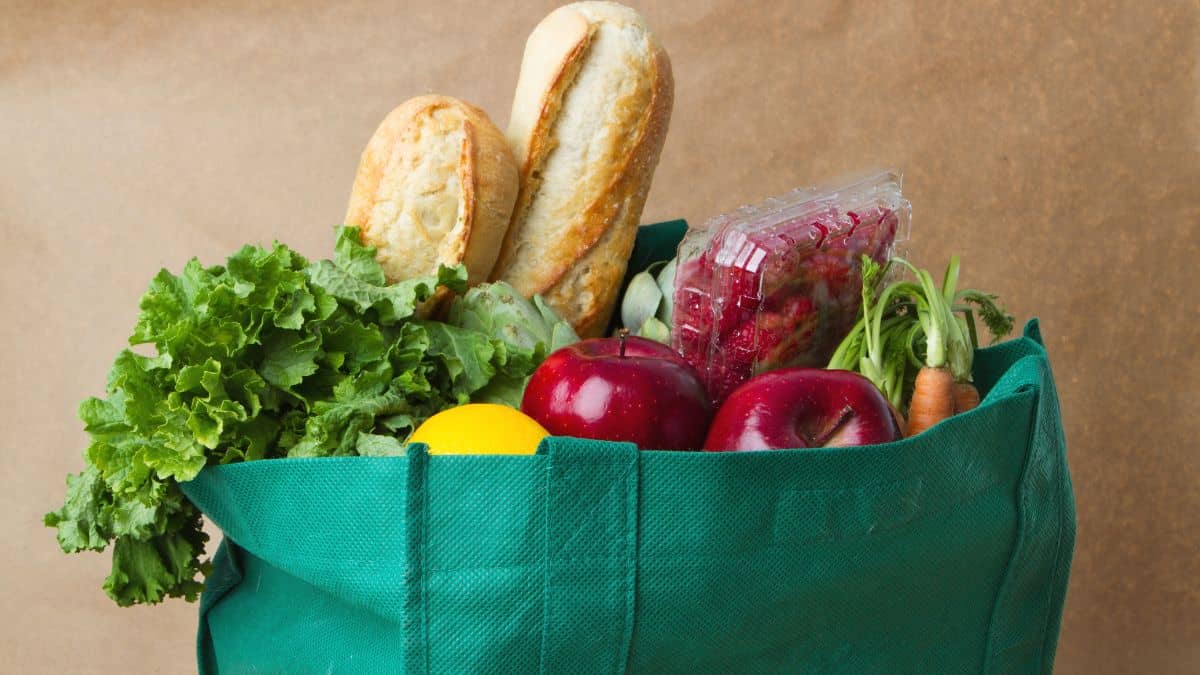
Replace single-use plastic bags with reusable shopping bags. These durable bags come in various sizes and materials, making them perfect for grocery shopping and other errands. They help reduce plastic waste and can be used repeatedly, saving money in the long run.
Beeswax Wraps
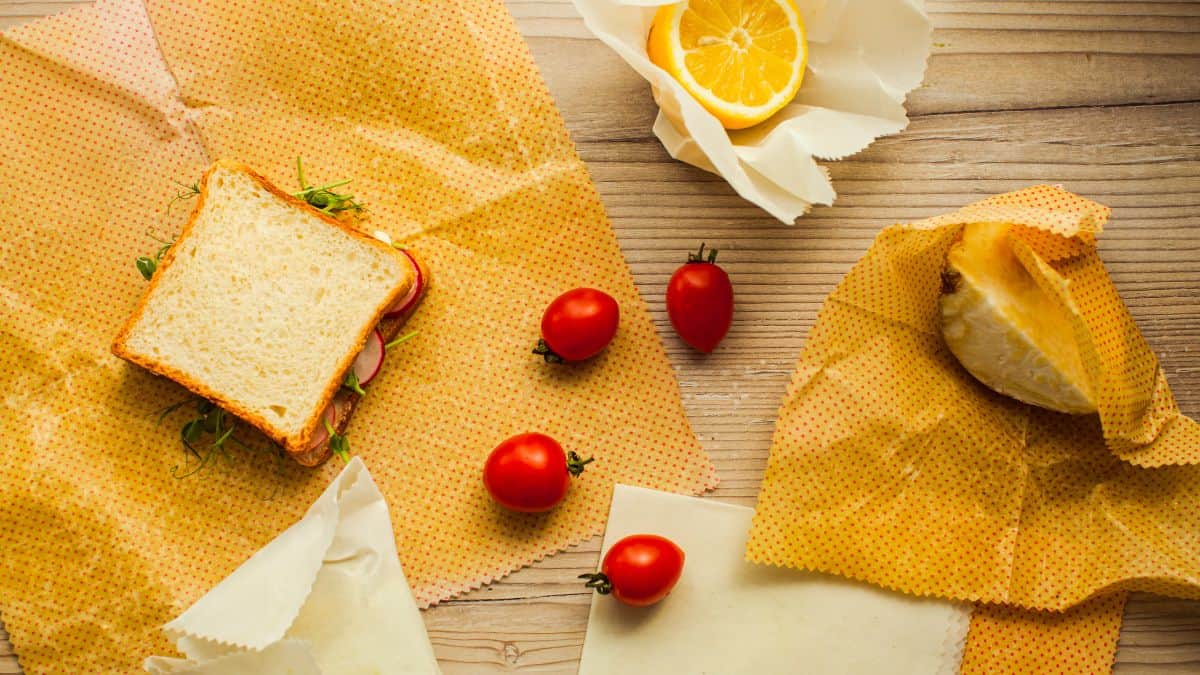
Swap out plastic wrap for beeswax wraps. These reusable wraps are made from natural materials and are perfect for covering bowls, wrapping sandwiches, and storing leftovers. They can be rinsed and reused multiple times, cutting down on single-use plastics in the kitchen.
Glass Storage Containers
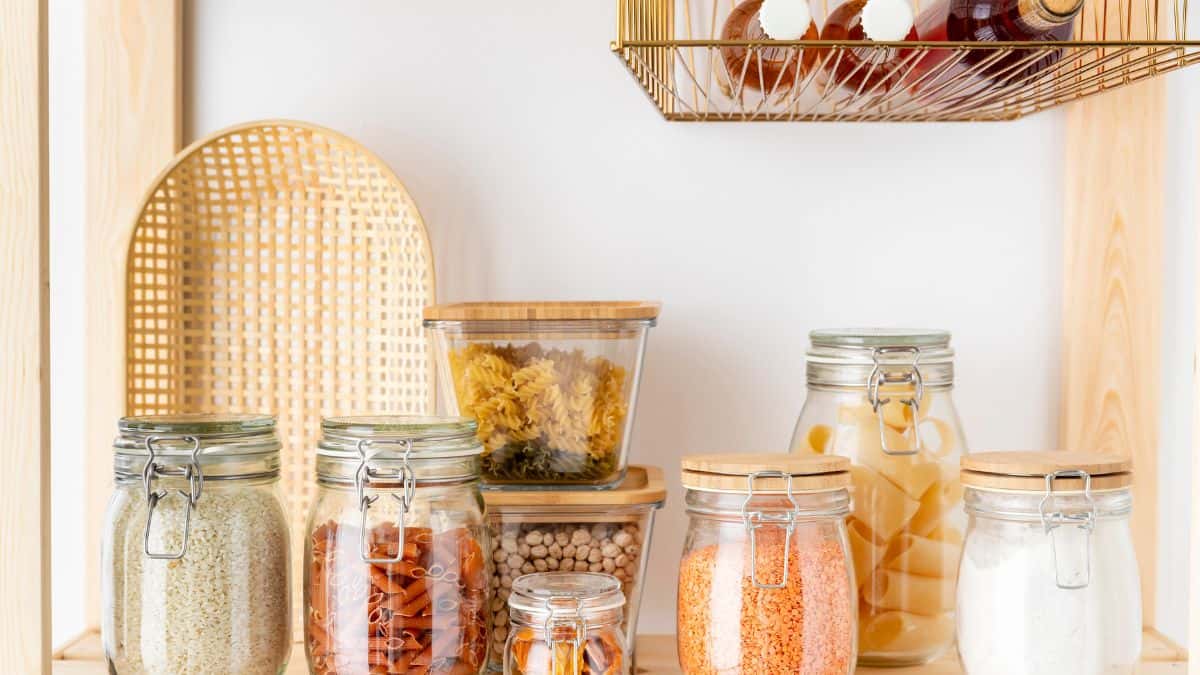
Switch to glass storage containers instead of plastic ones. Glass is more durable, doesn’t absorb odors, and is microwave and dishwasher-safe. It also helps reduce plastic waste and is a safer option for storing food, as it doesn’t leach chemicals.
Stainless Steel Water Bottles

Ditch single-use plastic water bottles and invest in stainless steel water bottles. These bottles are reusable, keep drinks cold or hot for longer periods, and are easy to clean. They’re a great way to stay hydrated while reducing plastic waste.
Cloth Napkins

Replace paper napkins with cloth napkins for a more sustainable dining experience. Cloth napkins can be washed and reused, reducing paper waste. They are available in various colors and designs, making them a stylish and eco-friendly choice.
Compost Bin
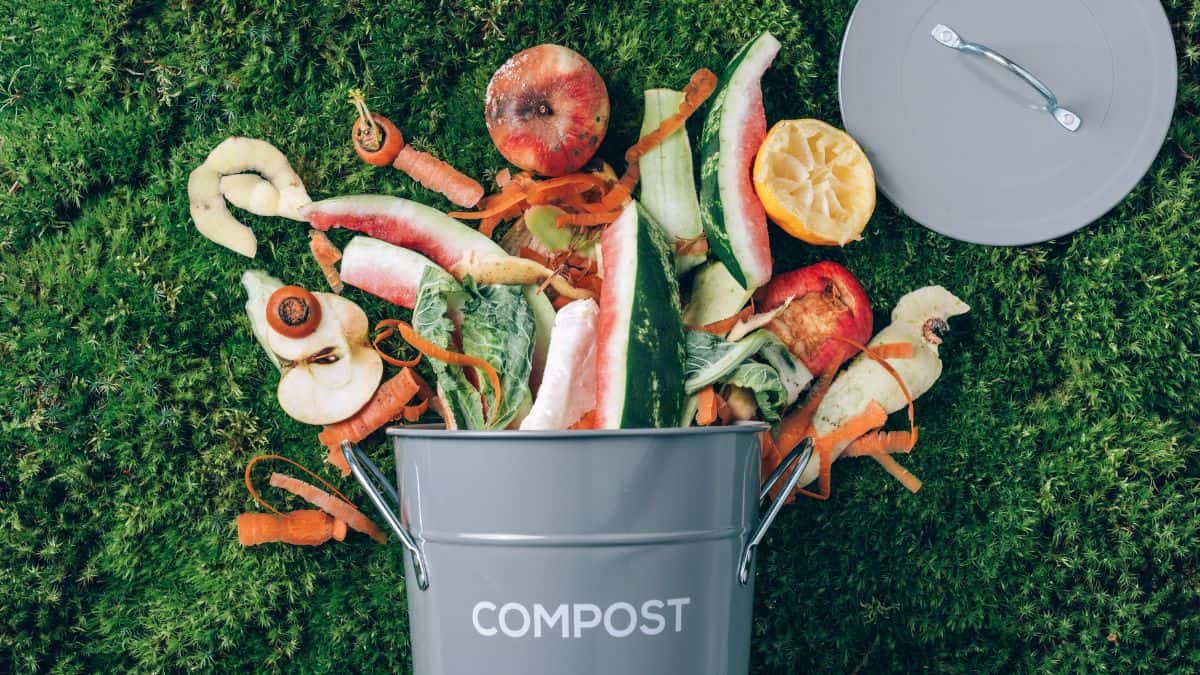
Start composting food scraps and organic waste. A compost bin helps reduce the amount of waste sent to landfills and produces compost for your garden. Composting is an excellent way to recycle kitchen waste and contribute to a more sustainable environment.
Eco-Friendly Cleaning Products
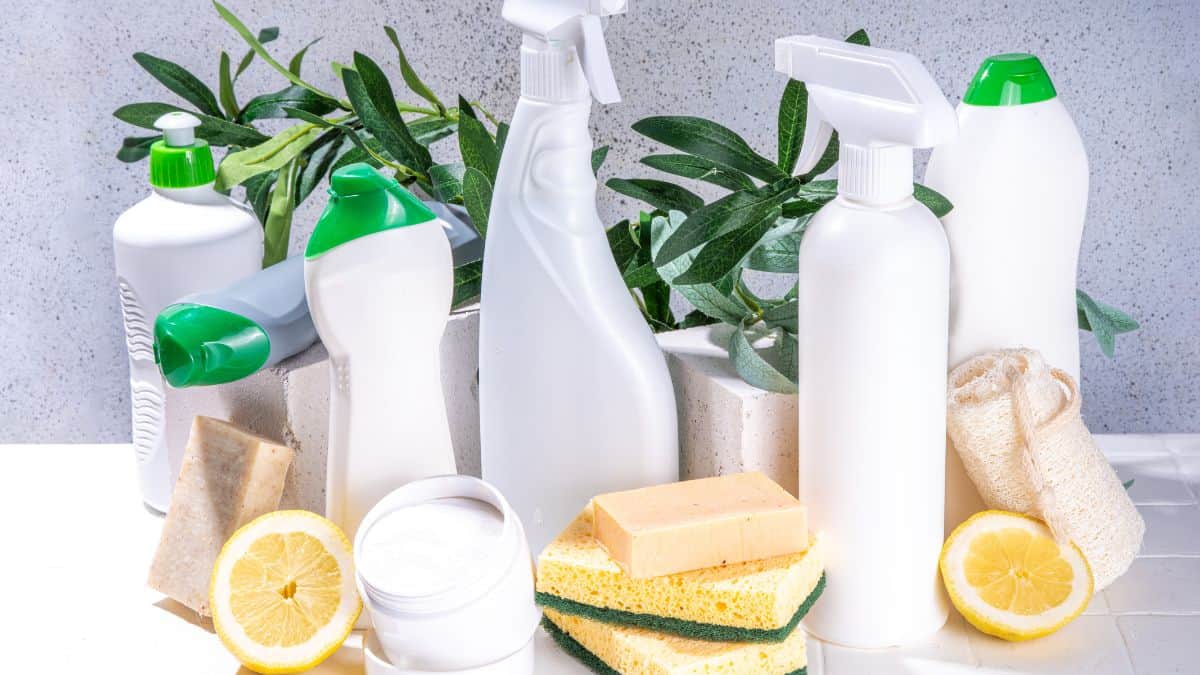
Switch to eco-friendly cleaning products that are biodegradable and free from harmful chemicals. Many conventional cleaning products contain harsh chemicals that can harm the environment and your health. Eco-friendly options are just as effective yet safer for you and the planet.
Reusable Produce Bags
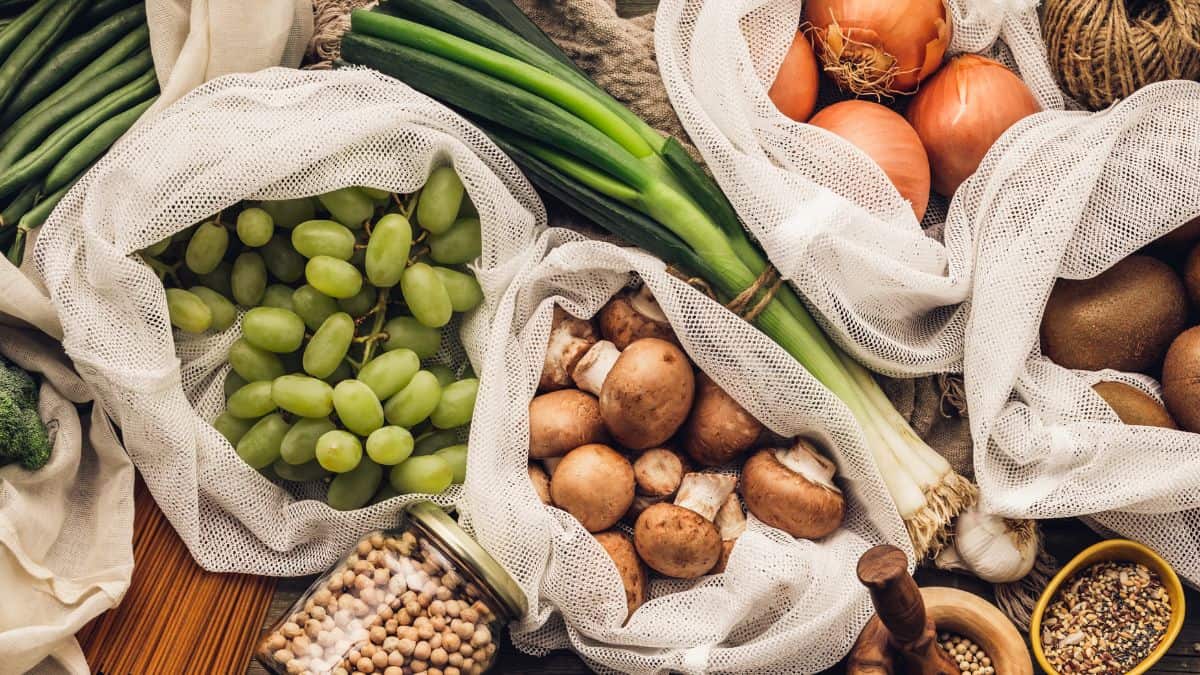
Use reusable produce bags instead of plastic ones for fruits and vegetables. These washable bags help reduce plastic waste and are perfect for storing fresh produce. They come in various sizes and are a simple yet effective way to make your kitchen more sustainable.
Silicone Baking Mats

Replace single-use parchment paper or aluminum foil with silicone baking mats. These mats are non-stick, easy to clean, and can be used repeatedly, reducing waste and saving money. They are perfect for baking cookies, roasting vegetables, and other oven-baked dishes.
Bulk Buying and Refill Stations
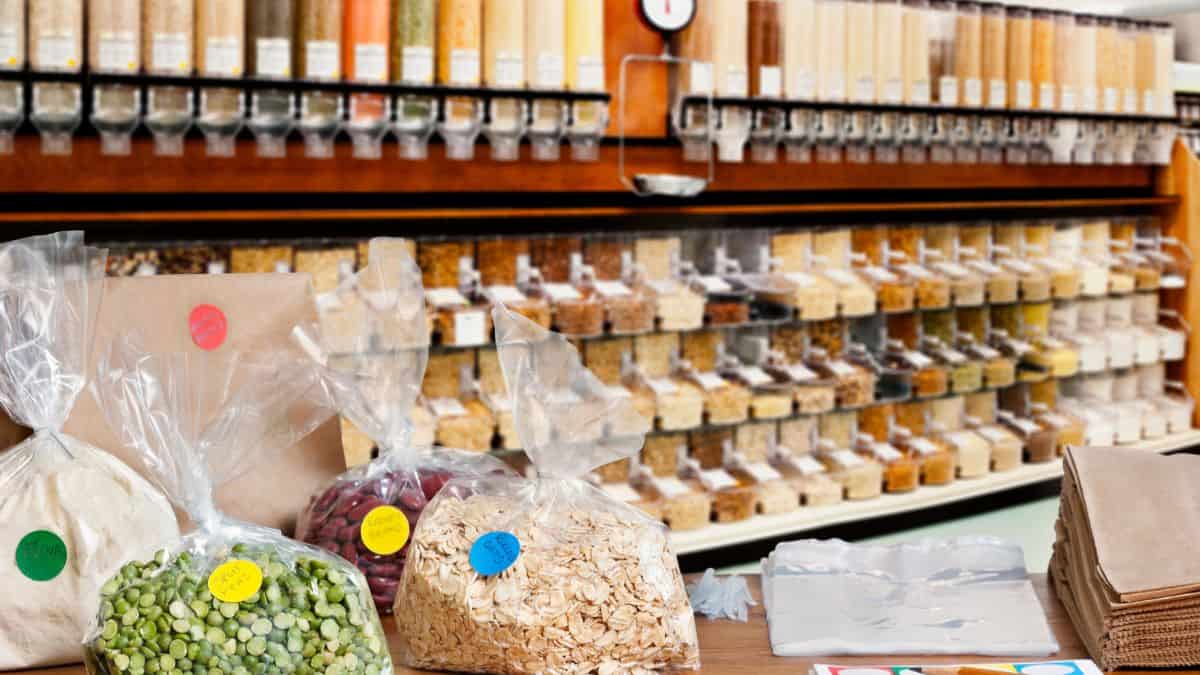
Buy pantry staples like grains, nuts, and spices in bulk to reduce packaging waste. Many stores also offer refill stations for items like oils, vinegar, and cleaning products. Bulk buying and refilling help minimize packaging waste and can often save you money.
Reusable Coffee Filters

Use reusable coffee filters instead of single-use paper filters. These filters are made from materials like stainless steel or cloth and can be washed and reused multiple times. They help reduce waste and are a cost-effective alternative for coffee lovers.
Kitchen Towels Instead of Paper Towels
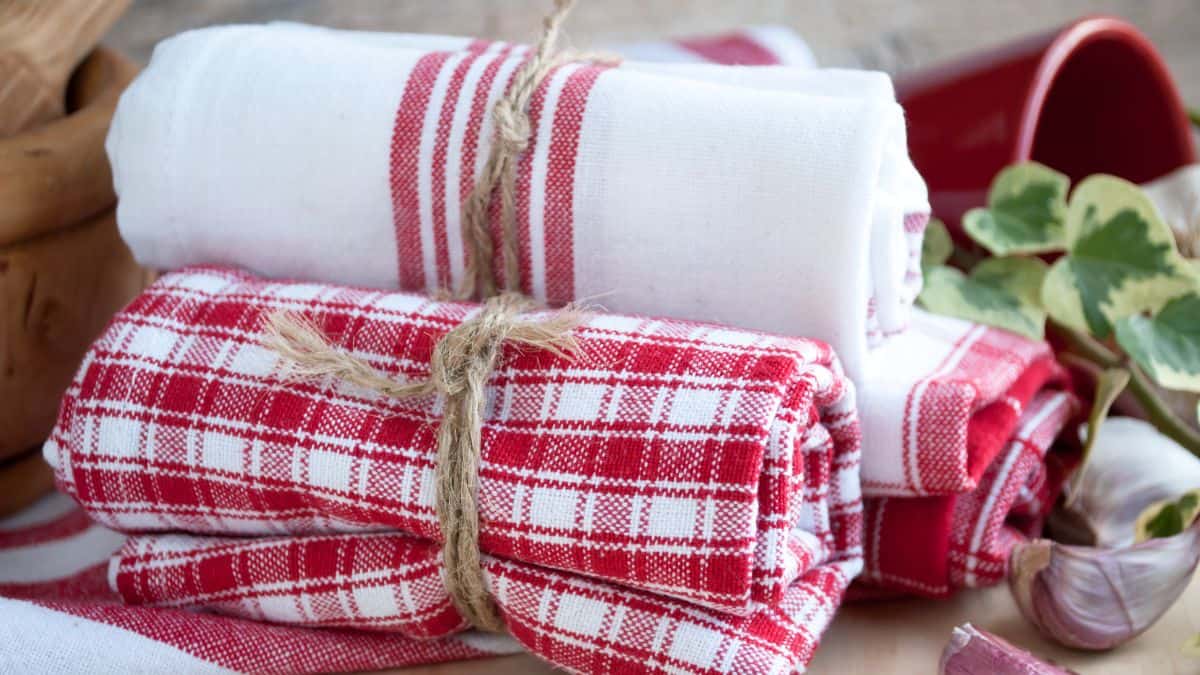
Opt for kitchen towels instead of paper towels for cleaning and drying in the kitchen. Kitchen towels can be washed and reused, reducing paper waste and saving money. They are also more absorbent and effective than paper towels for many kitchen tasks.
Buy Local Produce
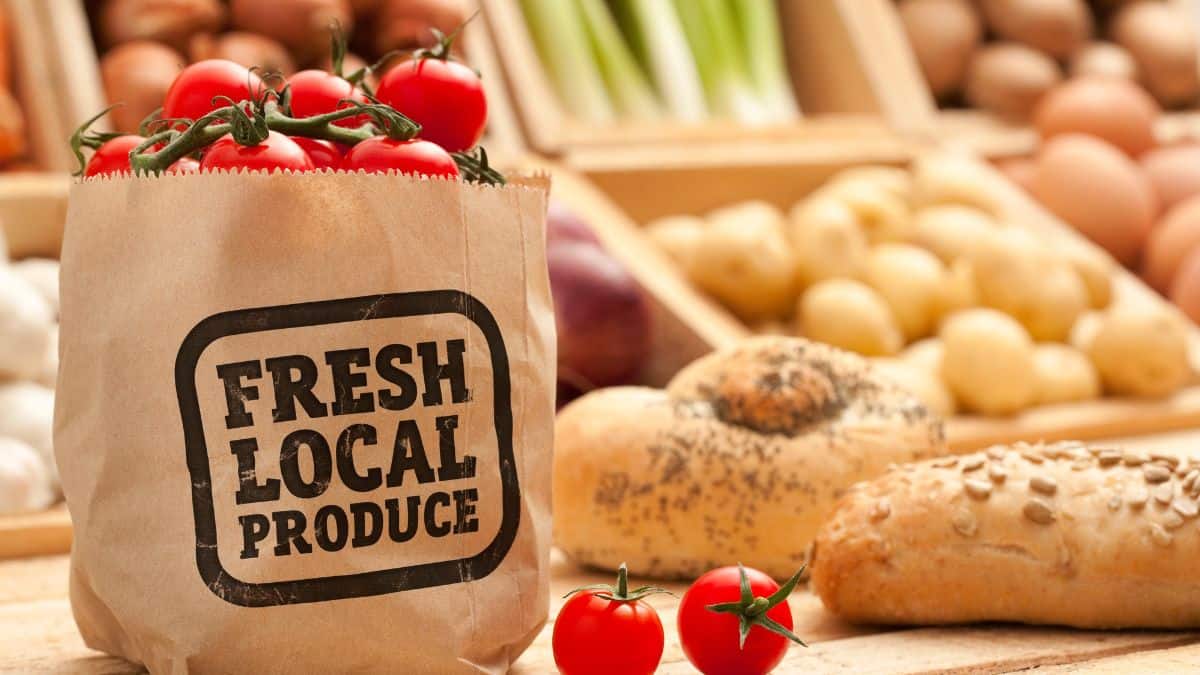
Choosing local produce helps reduce your carbon footprint by minimizing the distance food travels from farm to table. Local foods are often fresher and support local farmers, contributing to a more sustainable food system.
Use Fresh Seasonal Produce
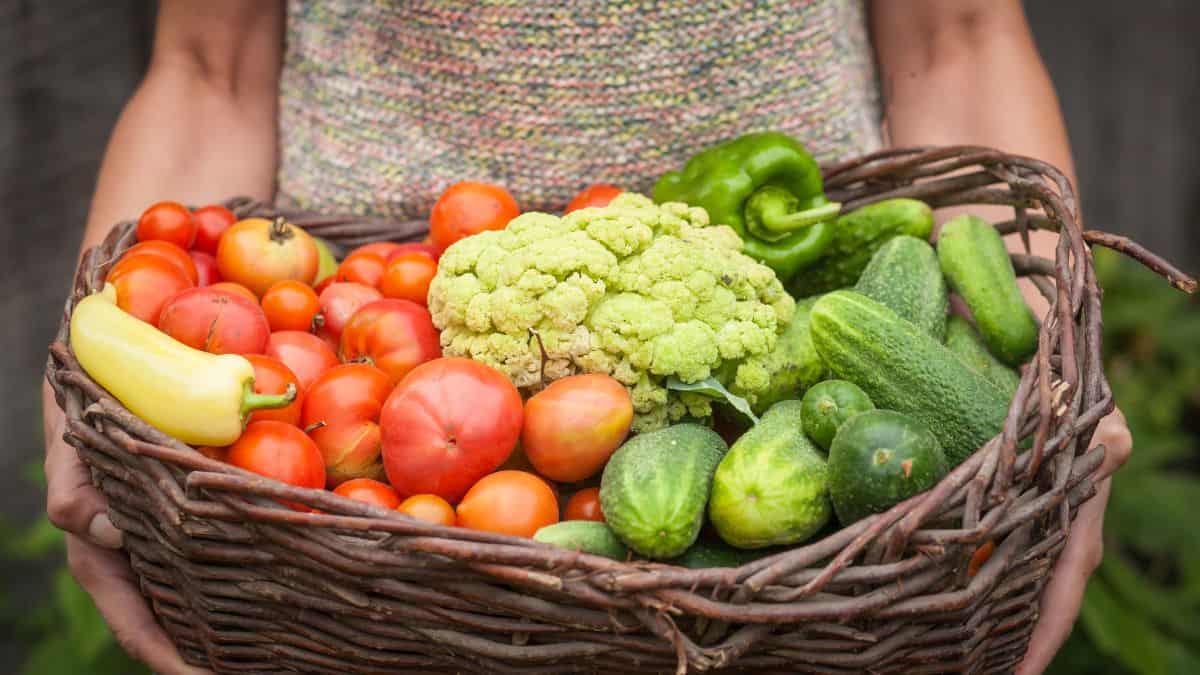
Eating fresh, seasonal produce enhances flavor and nutrition and reduces the environmental impact associated with growing out-of-season crops. Seasonal produce typically requires fewer resources and less energy to cultivate. Out-of-season produce needs proper storage and/or traveling from different parts of the world.
Opt for Organic Produce
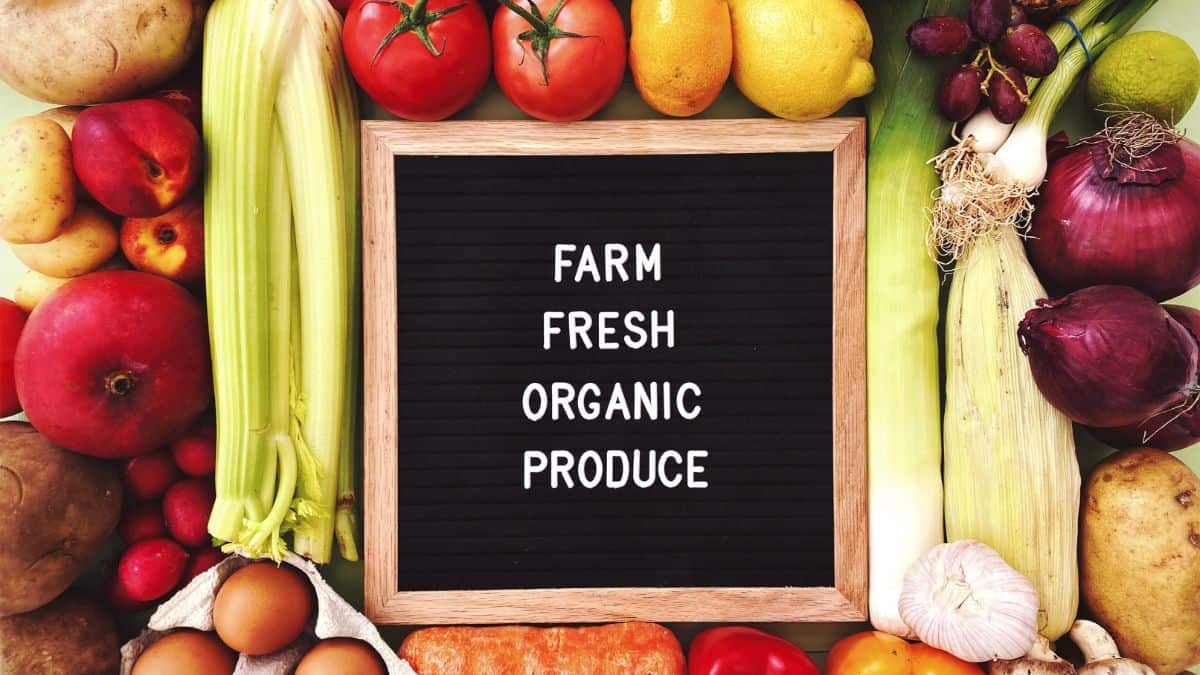
Organic produce is grown without synthetic pesticides or fertilizers, which helps reduce chemical runoff into the environment. By choosing organic, you’re supporting farming practices that are better for the planet and for your health.
Electric Cooking Instead of Gas Cooking
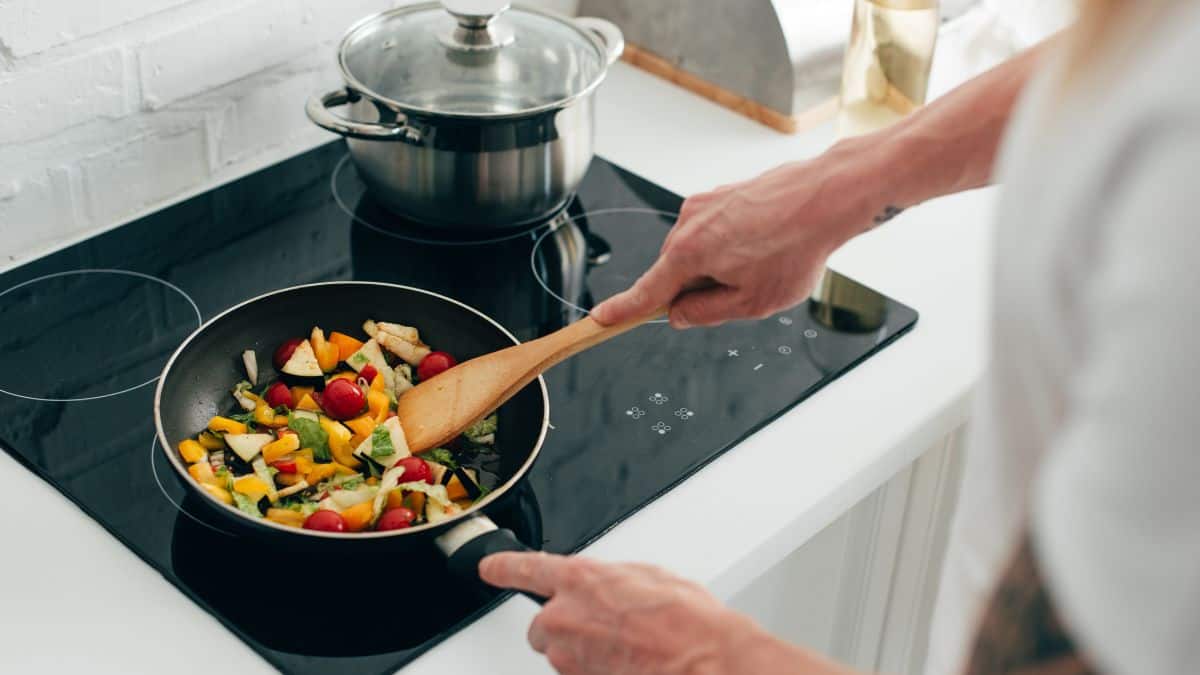
Switching to electric cooking, particularly if powered by green electricity from renewable sources, can lower your kitchen’s carbon footprint. It also reduces indoor air pollution compared to gas cooking.
Water Filter Instead of Bottled Water

Using a water filter is a more sustainable choice than buying bottled water. It reduces plastic waste and is often more cost-effective in the long run. Many filters also improve the taste and quality of tap water.
Biodegradable Trash Bags
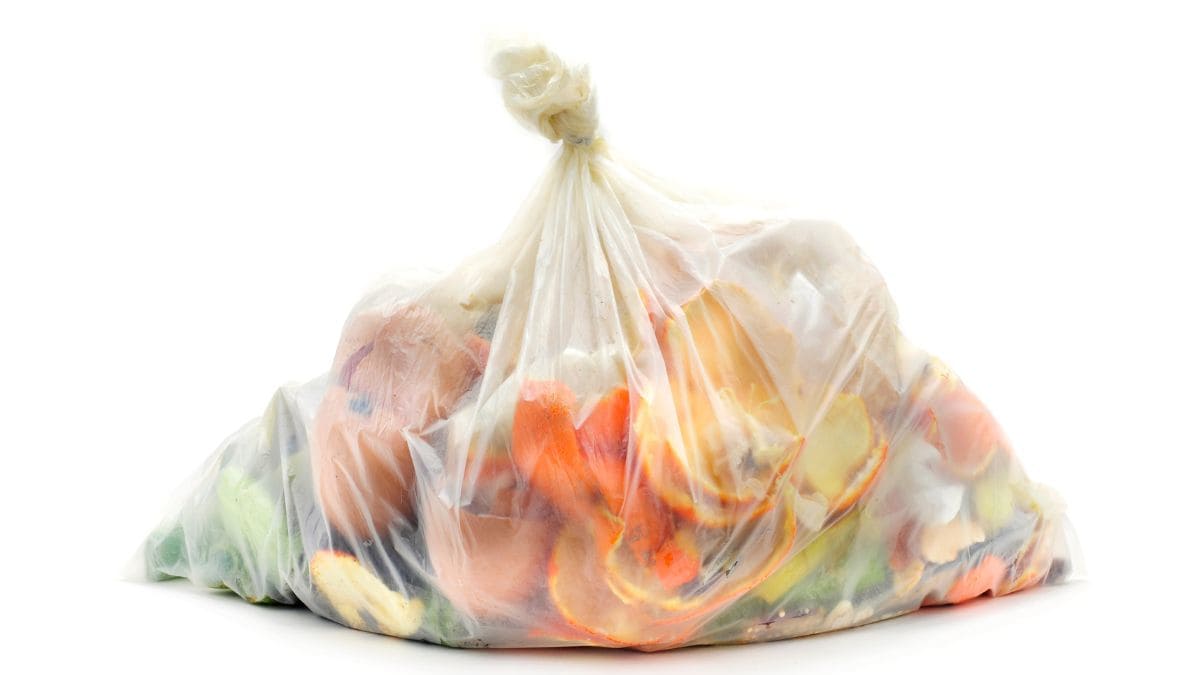
Opt for biodegradable trash bags to reduce the environmental impact of your waste. These bags break down more quickly than conventional plastic bags, so they are a better choice.
Reusable Metal or Glass Straws

Replace disposable plastic straws with reusable metal or glass straws. These options are durable, easy to clean, and significantly reduce plastic waste. They’re also a stylish and practical choice for beverages.
Reusable Food Storage Boxes
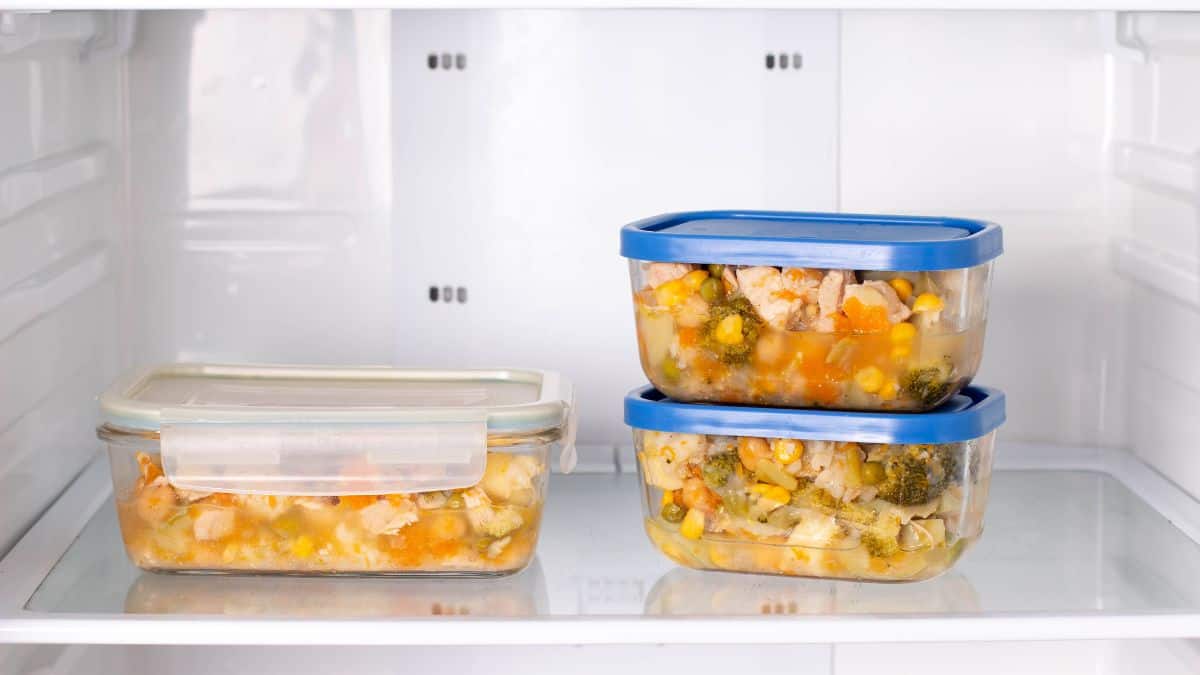
Invest in reusable food storage boxes for leftovers instead of single-use plastic containers. These boxes, available in materials like glass or stainless steel, are durable and can help reduce waste while keeping your food fresh.

